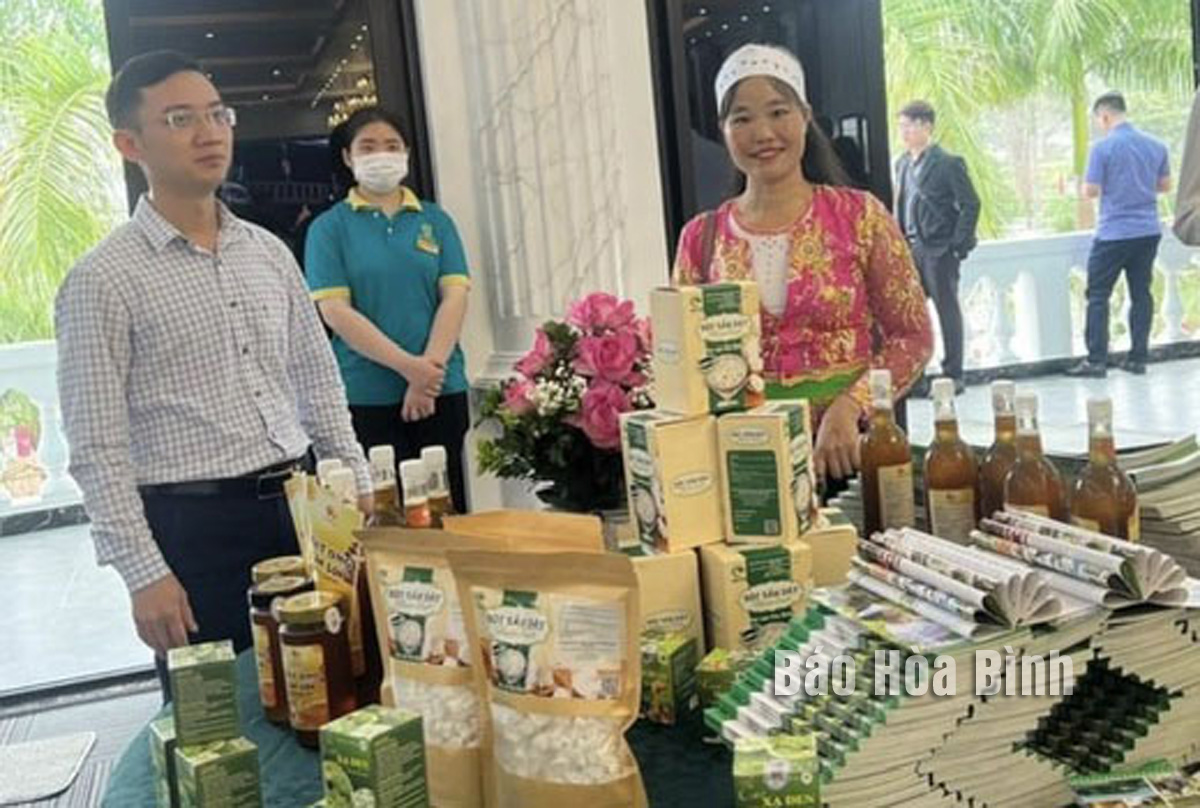
Capitalising on the health benefits of cassava starch and its large plantation, the Nhuan Trach agricultural service and cassava starch processing cooperative in Dong Se hamlet, Nhuan Trach commune, Luong Son district, has successfully developed a product that meet the One Commune One Product (OCOP)’s 3-star standard.

The Nhuan Trach cooperative’s cassava starch product has been
introduced by Luong Son district at many events in and outside the province.
Hoang Trong Thu, director of the cooperative,
has been involved in cassava starch production for over a decade. According to
him, starting from the commune’s crop cultivation restructuring policy, many
households in Dong Se have been cultivating high-yield cassava for years. Due
to its suitability to local soil and climate, the plant achieves high
productivity, with the hamlet alone bringing dozens of tonnes of cassava
products to the market annually. However, due to dependence on informal trade,
there were times when cassava prices dropped significantly, causing
difficulties for many households in the sale of the product.
"My family cultivates over 1 hectare of
high-yield cassava, so there are also times when we face heavy price-related
pressure. To rescue our own plantation and support local farmers, my family
decided to learn how to process cassava starch,” Thu said.
In the early days, Thu completely processed the
product manually. After many years of perseverance, his family and eight others
specialising in cassava cultivation established the cooperative to standardise
farming works according to VietGap, ensuring the quality of inputs. Simultaneously,
they invested in a machinery system, thereby building a closed production
process to ensure food safety. By now, the cooperative has developed a raw
material area ofover 8ha, turning out an average of 5-6 tonnes of starch
each year.
Thu stressed that all processes from input to
packaging follow food safety standards.
In September this year, the Luong Son People's
Committee classified the cooperative’s product as meeting the 3-star OCOP
certification.
In Lac Thuy district, communes have been succeeded in promoting their One Commune-One Product (OCOP) products while others are still struggling to position their typical farming products in market. Some communes in the district still fail to have their products met OCOP programme’s requirements, while others have seen their certifications expired.
The inspectorate agency of Hoa Binh province has issued Official Dispatch No. 1090/TTr-PCTN to provincial departments, agencies, localities, business associations, enterprises, and investors regarding measures to improve informal component indexes of the Provincial Competitiveness Index (PCI).
Hoa Binh is taking concrete steps to improve its investment environment, with a strong focus on supporting businesses, settling obstacles for strategic investors, and creating opportunities for robust development in the coming years.
Under the blazing early summer sun, the construction site of Nhuan Trach Industrial Park (IP) in Luong Son district is abuzz with activities from dawn to dusk, a testament to the determination of the investor to meet their construction targets on schedule.



